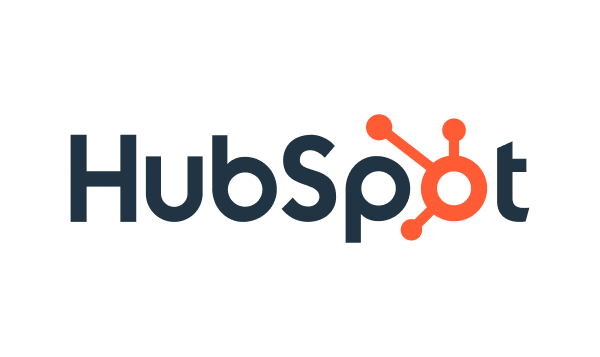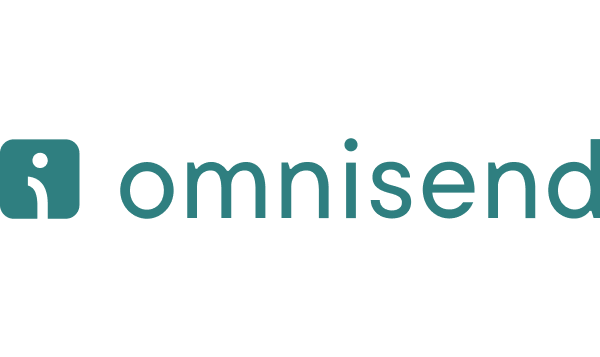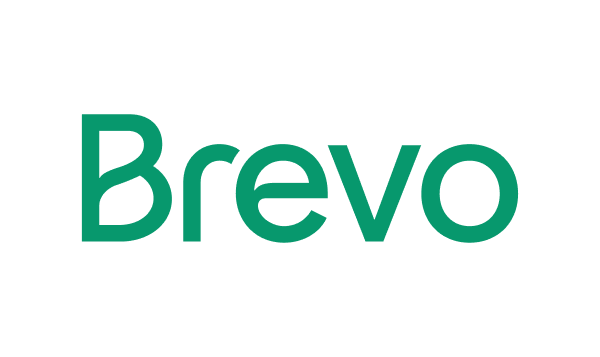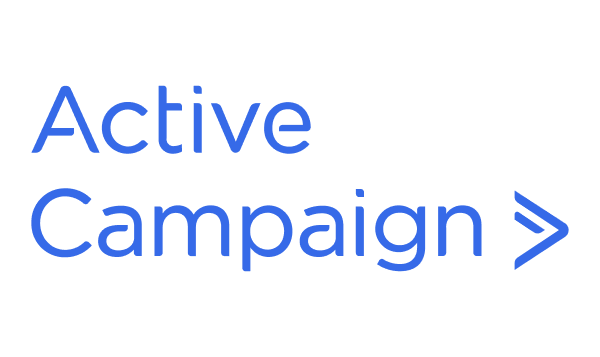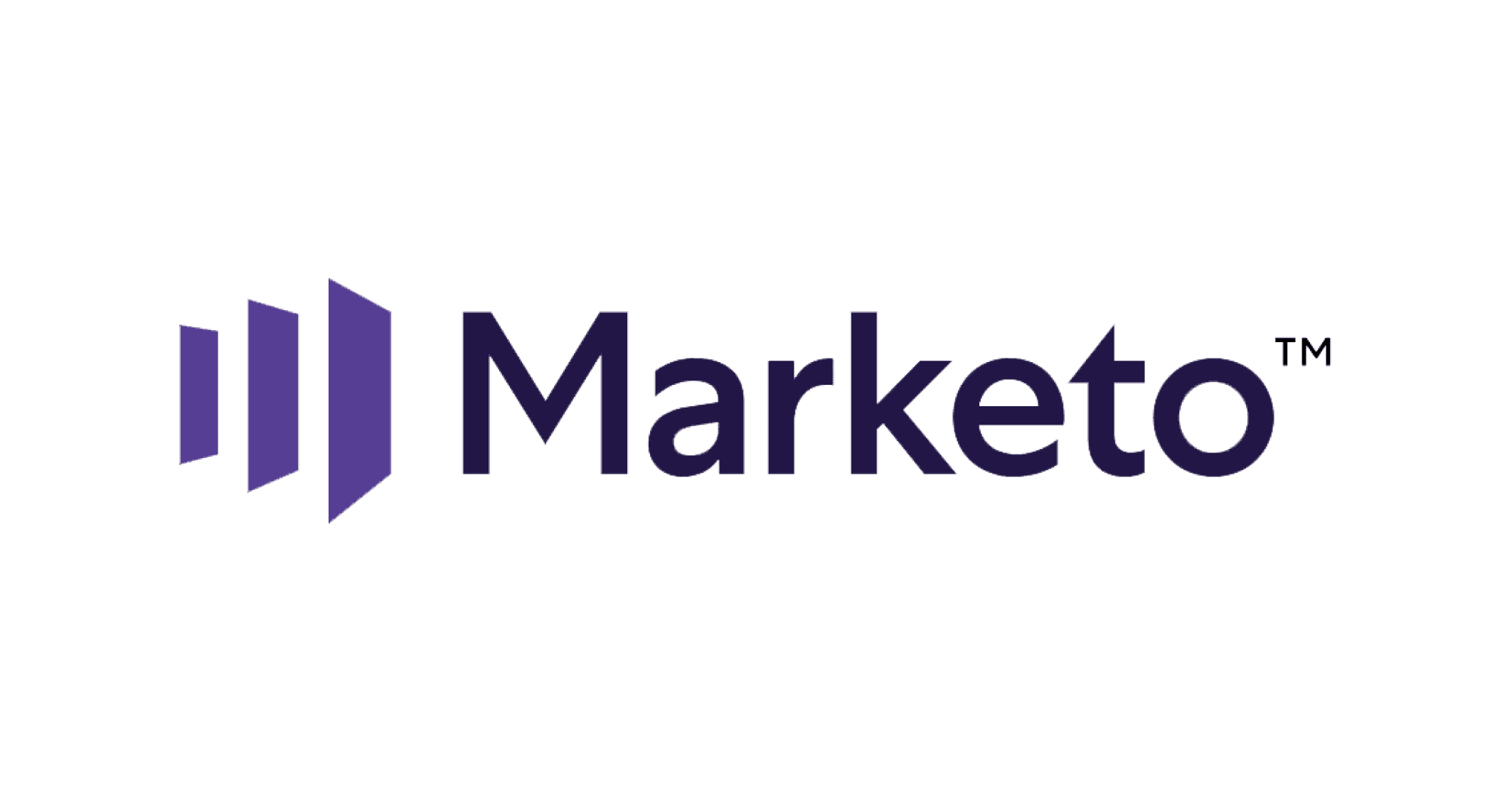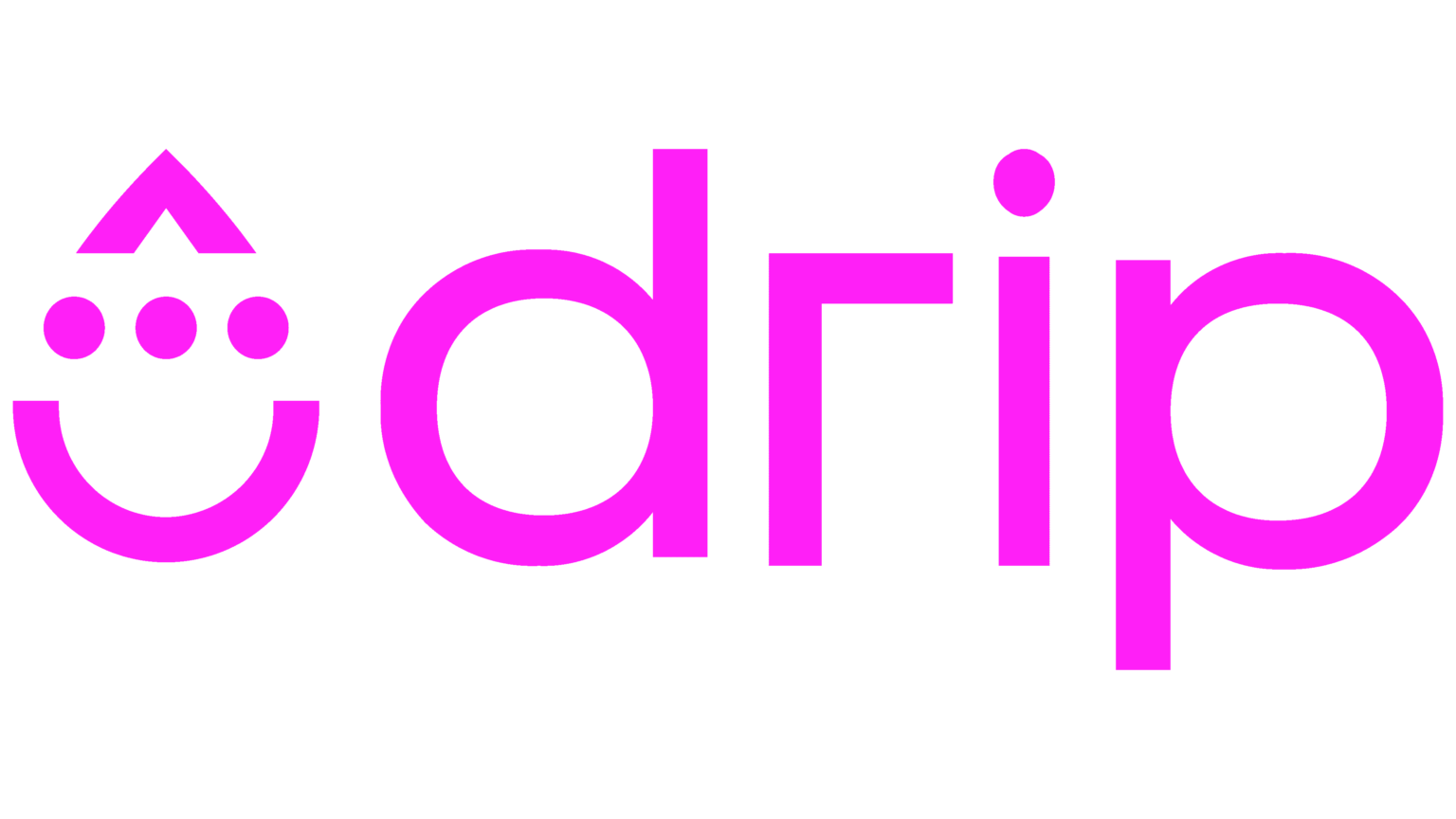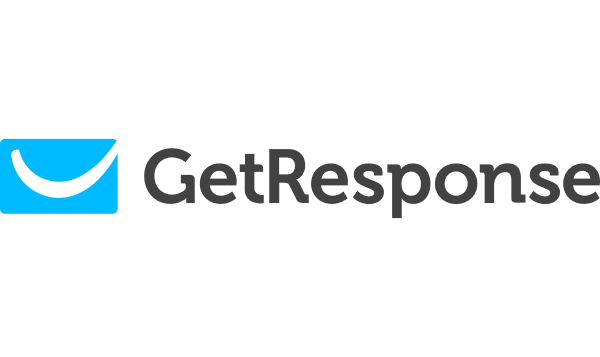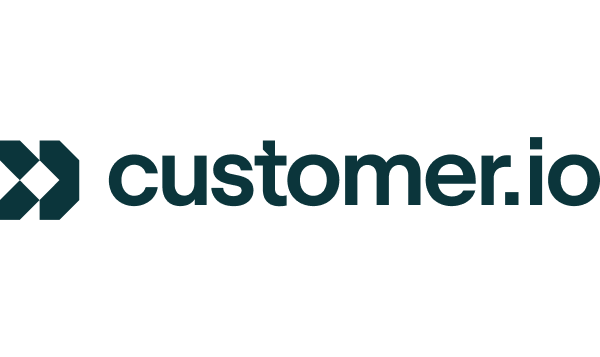Salesforce Pardot appeals to B2B marketing teams through its Salesforce integration, sophisticated lead scoring, and robust automation workflows. But here’s the thing—its steep learning curve, costs starting at $1,250 monthly, and limited design flexibility drive many businesses to look elsewhere.
Whether you’re priced out of Pardot’s enterprise model, need specialized ecommerce features, or just want more user-friendly marketing automation software, there are plenty of alternatives that offer better value.
Our guide examines 11 leading platforms, ranging from budget-friendly options to enterprise solutions, to help you find the best Pardot alternative for your business needs and budget.
30-Second Verdict: Which Pardot Alternative Should You Choose?
If you need a rapid answer, here are our expert-recommended Pardot alternatives for 2026:
- Best All-Around Value: Sender — Offers the most generous free plan (15,000 emails/2,500 subscribers) with full multichannel automation, making it ideal for growing businesses that want enterprise-grade features without Pardot’s $1,250/month price tag.
- Best for Ecommerce Automation: Omnisend — Purpose-built workflows for cart abandonment, browse abandonment, and post-purchase sequences with unified email, SMS, and push notifications.
- Best for Budget & High Volume: Brevo — Volume-based pricing (not contact-based) starting at $8/month makes it perfect for businesses with large databases and moderate sending frequency.
Scroll down for a side-by-side price and feature breakdown.
Pardot Platform Overview
Pardot has established itself as a leading B2B marketing automation platform within the Salesforce ecosystem, now officially known as Marketing Cloud Account Engagement. While it offers solid features for enterprise marketing teams, understanding both its strengths and limitations helps explain why businesses seek alternatives.
Here’s what makes Pardot appealing, and where it falls short in meeting modern marketing needs.
Key Strengths
- Seamless salesforce integration and sales alignment. Users consistently praise Pardot’s deep integration with Salesforce CRM, with one reviewer noting, “My favorite aspect of Salesforce Pardot is the seamless integration with the Salesforce ecosystem, allowing marketing and sales teams to collaborate efficiently;”
- Solid lead scoring and tracking capabilities. A few users shared that “Pardot has the ability to have multiple lead scoring models run at the same time” and “For me, the best thing is the Custom Redirect. I can track a link wherever I’m sharing it;”
- Strong B2B marketing automation and campaign management. One enterprise user reported “After implementing Web-To-Lead in Salesforce, within 6 months, we generated 17K qualified leads based on the criteria set. It’s a great value add for Halliburton!” and another shared”Pardot has made it easy to understand how our marketing is working, know who is a hot lead versus a disengaged one, and to create content that is easy to share and delivers good ROI;”
- Comprehensive ROI reporting and analytics. A user was happy enough to leave this review: “Pardot delivers significant ROI through increased sales, notably a 32% rise.”
Key Limitations
- Steep learning curve and complex interface. It seems to be a constant struggle for users, e.g. “What I like least about Salesforce Pardot is the learning curve, which can be challenging for new users. While the platform offers solid features, the complexity of some tools and the need for detailed configuration can be intimidating;”
- Limited design flexibility and email editor issues. Here’s how users on PeerSpot put it: “When we compare it to other automation tools, in Pardot, I’m not able to see any drag-and-drop options. We have to work on an HTML template itself” and “Pardot needs many improvements in terms of email design and design studio functionalities;”
- High cost for small to medium businesses. With pricing starting at $1,250 per month making it among the costliest options in the market;
- Weak third-party integrations and API limitations. It seems that Pardot bit more when they could chew or as one user put it “When it comes to integration with third-party tools, Pardot’s APIs are not that robust” and another one: “There are a bunch of dead features (Search, Ads, Social Media). They’re there, and they were hyped to us to sign the contract, but they don’t work.”
Why Consider Pardot Alternatives?
Beyond Pardot’s platform limitations, the marketing automation landscape has shifted significantly. Many businesses find the cost structure prohibitive and seek an affordable alternative without sacrificing core functionality.
Here’s why 2026 might be the right time to explore other options:
- Modern alternatives have closed the gap. Platforms like Sender, HubSpot, and ActiveCampaign now offer comparable B2B automation capabilities—lead scoring, behavioral triggers, and CRM integrations—that were once exclusive to enterprise tools like Pardot.
- Faster time-to-value. While Pardot requires extensive onboarding and configuration, many alternatives let teams launch sophisticated campaigns within days, not months. Drag-and-drop builders and pre-built workflow templates eliminate the need for dedicated admins or expensive implementation partners.
- Platform uncertainty after rebrand. Pardot’s transition to “Marketing Cloud Account Engagement” has created confusion around product direction, feature development, and long-term roadmap. Some users report inconsistent support experiences during this transition period.
- Better options for non-Salesforce users. If you’re not fully committed to the Salesforce ecosystem, Pardot’s value proposition weakens considerably. Alternatives offer more flexible CRM integrations—whether you’re using HubSpot CRM, Pipedrive, Zoho, or a custom solution.
- Pricing that scales with growth. Unlike Pardot’s steep $1,250/month entry point, many alternatives offer volume-based or tiered pricing models that grow with your business. This means you’re not overcommitting budget before proving ROI.
Quick Picks: Find the Perfect Pardot Alternative Fast
Use this list to quickly match your business needs with the right marketing automation platform:
- Best Free Plan: Sender (15,000 monthly emails for 2,500 subscribers with full automation access.)
- Best for Ecommerce: Omnisend (Pre-built cart abandonment, browse abandonment, and post-purchase workflows.)
- Best for Startups & SMBs: Mailchimp (Intuitive interface, extensive templates, and scalable pricing.)
- Best Budget Option: Brevo (Volume-based pricing from $8/month with unlimited contacts.)
- Best for Enterprise & Agencies: Marketo (Advanced ABM, multi-touch attribution, and enterprise-grade customization.)
- Best All-in-One Solution: HubSpot (Unified CRM, marketing automation, and content management.)
- Best for B2B Sales Alignment: ActiveCampaign (Deep CRM integration with predictive lead scoring.)
- Best for Data-Driven Ecommerce: Klaviyo (Machine learning-powered segmentation and predictive analytics.)
- Best for Multichannel Campaigns: Sender (Unified email, SMS, and automation in one workflow builder.)
- Best for Conversion Funnels: GetResponse (Built-in funnel builder with webinar integration.)
| Platform | Pros | Cons | Price |
| Sender | ✅ Generous free plan (15K emails/2.5K subs) ✅ Unified email, SMS, and automation ✅ Easy drag-and-drop builder | ❌ Sender branding on free plan ❌ SMS only on paid plans ❌ Less brand recognition | Free plan available · Paid from $7/mo |
| HubSpot Marketing Hub | ✅ All-in-one CRM + marketing platform ✅ Advanced segmentation & lead scoring ✅ 1,800+ integrations | ❌ Expensive as you scale ❌ Steep learning curve ❌ Poor Shopify rating (1.0/5) | Free plan available · Paid from $18/mo |
| Omnisend | ✅ Pre-built ecommerce workflows ✅ Email + SMS + push in one ✅ Dynamic product recommendations | ❌ Limited outside ecommerce ❌ Price increases quickly ❌ Fewer templates vs competitors | Free plan available · Paid from $20/mo |
| Brevo (Sendinblue) | ✅ Affordable volume-based pricing ✅ Advanced triggers on free tier ✅ Built-in CRM | ❌ Daily send cap on free plan ❌ UI can feel outdated ❌ Automation UI less intuitive | Free plan (300 emails/day) · Paid from $8/mo |
| Mailchimp | ✅ Beginner-friendly interface ✅ AI-assisted insights ✅ Strong ecommerce integrations | ❌ Expensive for growing lists ❌ Support can be slow ❌ Trustpilot score 2.8/5 | Free plan available · Paid from $19/mo |
| Klaviyo | ✅ Predictive analytics engine ✅ Deep ecommerce integration ✅ Smart real-time segmentation | ❌ Expensive for small businesses ❌ Learning curve for new users ❌ Trustpilot score 2.2/5 | Free plan available · Paid from $30/mo |
| ActiveCampaign | ✅ Advanced CRM integration ✅ Predictive sending + lead scoring ✅ Strong A/B testing tools | ❌ Can be complex to set up ❌ No free plan (14-day trial) ❌ Limited ecommerce features | 14-day free trial · Paid from $15/mo |
| Marketo | ✅ Best-in-class ABM tools ✅ Deep analytics & attribution ✅ Scalable enterprise automation | ❌ No free plan or trial ❌ High complexity ❌ Custom pricing only | Custom pricing · No free plan |
| Drip | ✅ Ecommerce CRM focus ✅ Detailed behavior tracking ✅ Visual automation builder | ❌ Pricey for small shops ❌ Learning curve ❌ Limited brand awareness | 14-day free trial · Paid from $39/mo |
| GetResponse | ✅ Conversion funnel builder ✅ AI send-time optimization ✅ Great autoresponders | ❌ Lower Shopify rating (3.0/5) ❌ UI slightly dated ❌ Feature overload for beginners | 30-day free trial · Paid from $19/mo |
| Customer.io | ✅ Deep behavioral automation ✅ Omnichannel (email, SMS, push, in-app) ✅ Startup program (1 year free) | ❌ Daily send cap on free plan ❌ UI can feel outdated ❌ Automation UI is less intuitive | Startup program available · Paid from $100/mo |
11 Pardot Alternatives to Consider in 2026
The marketing automation landscape has evolved quite a bit, offering businesses diverse alternatives that often outperform Pardot in specific areas such as user experience, pricing, and specialized features. Today’s options deliver complex features and workflows that were once exclusive to enterprise solutions, all without the enterprise overhead.
Our selection represents the top Pardot competitors across different business sizes, industries, and marketing requirements.
Sender — Great Multichannel Automation Software
⭐️ Trusted by 180,000+ businesses worldwide.
Sender emerges as an excellent Pardot alternative for businesses seeking multichannel automation without enterprise complexity. With its generous free plan offering 15,000 monthly emails for 2,500 subscribers and full access to automation features, Sender provides exceptional value for growing businesses looking to manage campaigns effectively.
The platform excels at combining email and SMS marketing in unified workflows, enabling seamless omnichannel campaigns. Sender’s powerful automation builder lets you create sophisticated drip campaigns, abandoned cart sequences, and behavioral triggers using an intuitive drag-and-drop interface—no technical expertise required.
The platform integrates smoothly with popular ecommerce platforms, including Shopify and WooCommerce, automatically syncing customer data to trigger personalized campaigns based on purchase behavior and browsing patterns. Whether nurturing leads or re-engaging inactive subscribers, Sender ensures the right message reaches the right person at the optimal time.
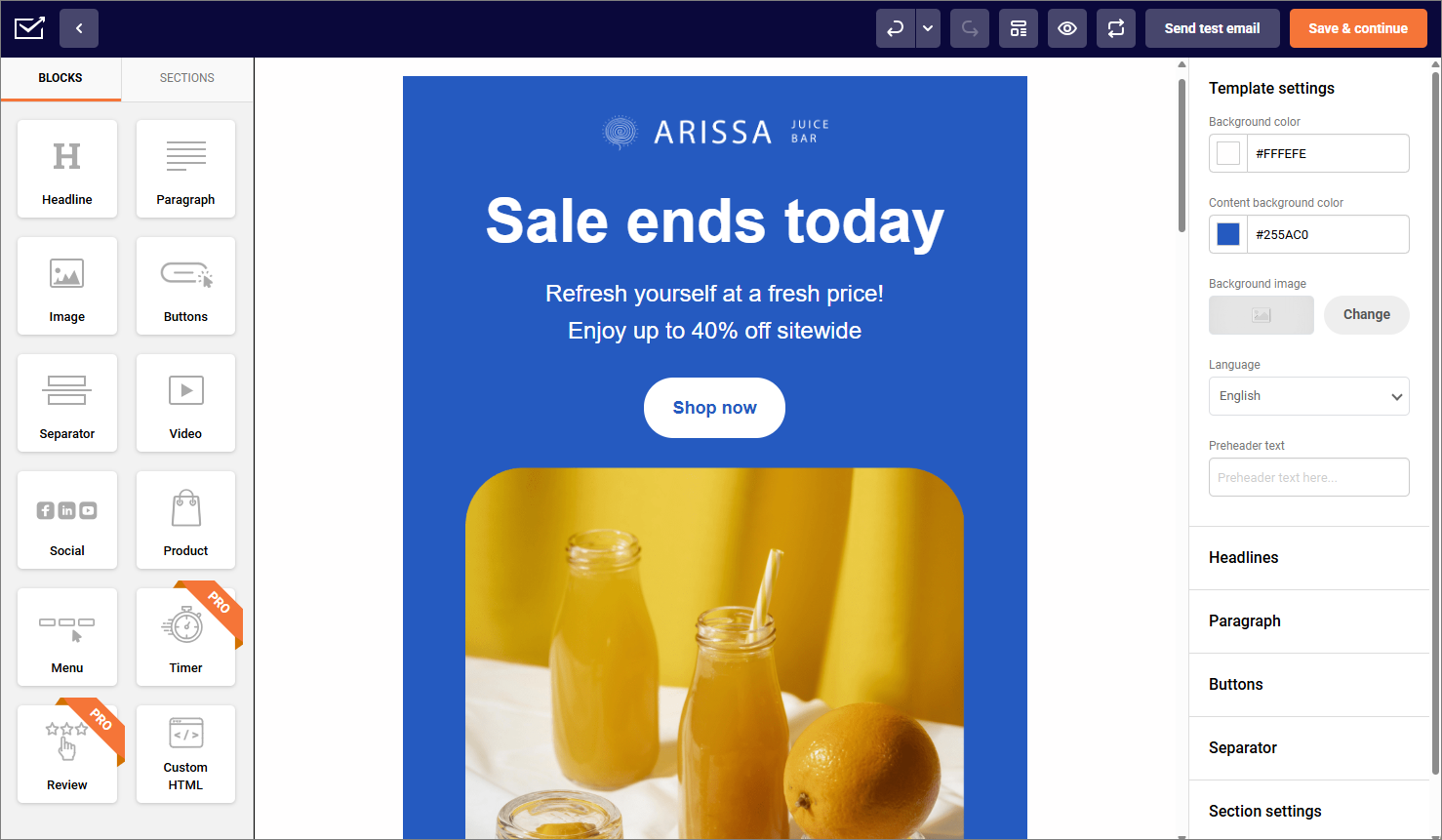
Automation Features
- Premade workflow templates. Ready-to-use automation sequences including welcome series, abandoned cart recovery, and thank you workflows with built-in email templates;
- Multichannel automation. Unified workflows combining email, SMS, and web push notifications for consistent cross-channel messaging experiences;
- Behavioral triggers. Advanced triggers based on subscriber actions, purchases, form submissions, and website activity for timely automated responses;
- Visual workflow builder with A/B testing. Intuitive drag-and-drop editor with conditions, delays, branching logic, and built-in A/B testing platforms for optimization.
Pros & Cons
- ✅ Generous free plan (15,000 emails/2,500 subscribers)
- ✅ Unified email, SMS, and automation in one platform
- ✅ Intuitive drag-and-drop builder with no learning curve
- ❌ Sender branding on free plan
- ❌ No landing page builder (yet)
- ❌ Less brand recognition than established competitors
Use Cases by Industry
Sender’s versatile automation platform serves diverse industries with its multichannel approach and cost-effective pricing structure. The generous free plan makes it particularly attractive for growing businesses and startups across various sectors that seek professional marketing automation without the complexity or costs associated with enterprise solutions.
- Ecommerce & retail. Automated cart abandonment sequences, product launch campaigns, and customer retention workflows with SMS and email integration;
- SaaS & technology. User onboarding sequences, feature announcement campaigns, and churn prevention workflows with behavioral trigger automation.
HubSpot Marketing Hub — Leading All-in-One Solution
HubSpot stands out among Pardot alternatives as an all-in-one CRM platform unifying marketing, sales, and service functions. It offers a more integrated ecosystem that scales from startups to enterprises, surpassing Pardot’s narrow B2B marketing automation approach.
The platform’s automation capabilities extend beyond email to include advanced lead scoring, progressive profiling, and behavioral triggers across multiple touchpoints. HubSpot’s Smart CRM automatically captures and organizes prospect data, enabling sophisticated segmentation and personalized campaigns that rival enterprise solutions while remaining accessible to smaller teams.
HubSpot features a content management system that seamlessly integrates with marketing automation, allowing you to create landing pages, blogs, and forms that automatically feed into nurturing workflows. With over 1,800 third-party integrations, HubSpot eliminates the need for multiple separate solutions while providing the scalability growing businesses require.
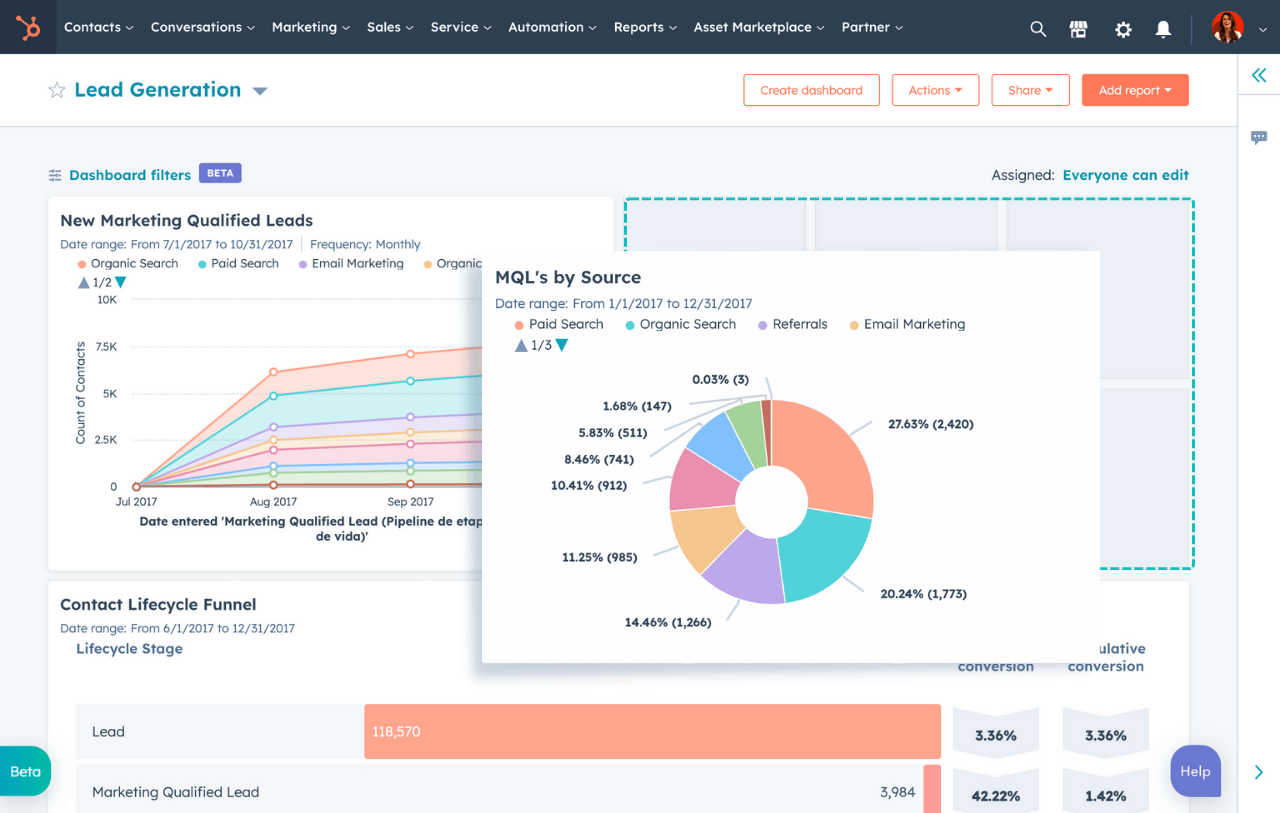
Automation Features
- Visual workflow builder. Intuitive drag-and-drop editor with AI-driven workflow generation using Breeze for creating sophisticated marketing automation sequences;
- Behavioral triggers. Comprehensive trigger system based on form submissions, page views, email engagement, and CRM integration tools for precise targeting;
- Lead scoring & nurturing. Automated lead scoring solutions with progressive profiling and personalized journey mapping that adapts to customer behavior;
- Cross-platform integration. Native integrations with automated data sync across marketing, sales, and service workflows for unified customer experiences.
Pros & Cons
- ✅ All-in-one CRM, marketing, and sales platform
- ✅ Advanced segmentation and lead scoring
- ✅ 1,800+ native integrations
- ❌ Expensive as you scale to higher tiers
- ❌ Steep learning curve for full feature set
- ❌ Poor Shopify app rating (1.0/5)
Use Cases by Industry
HubSpot’s comprehensive platform scales across industries with its all-in-one approach, making it ideal for businesses seeking integrated marketing, sales, and service solutions. The platform’s extensive feature set and industry-specific tools support a wide range of organizations, from small businesses to enterprise-level enterprises across various sectors, with key features that enhance team productivity.
- B2B marketing platforms. Lead nurturing software workflows, content marketing automation, and sales pipeline management with comprehensive built-in CRM functionality;
- Education & non-profit. Student enrollment campaigns, donor engagement sequences, and event promotion workflows with robust analytics and reporting.
Omnisend — Ecommerce-Focused Automation
Omnisend specifically targets ecommerce businesses with purpose-built automation workflows designed to drive online sales. The platform combines email and SMS marketing in a unified system optimized for customer lifecycle marketing and enhanced customer interaction, making it a strong Pardot alternative for retail and direct-to-consumer brands.
The platform’s pre-built automation workflows address common ecommerce scenarios—cart abandonment, browse abandonment, and post-purchase follow-ups—with industry-leading conversion rates. Omnisend’s product picker automatically pulls product data, images, and pricing into emails, creating dynamic recommendations based on browsing and purchase history.
Omnisend’s segmentation capabilities leverage ecommerce-specific data points including purchase frequency, average order value, and product preferences to create highly targeted campaigns. Integration with Shopify, BigCommerce, and other platforms ensures real-time data synchronization for timely, relevant messaging through sophisticated behavioral tracking.
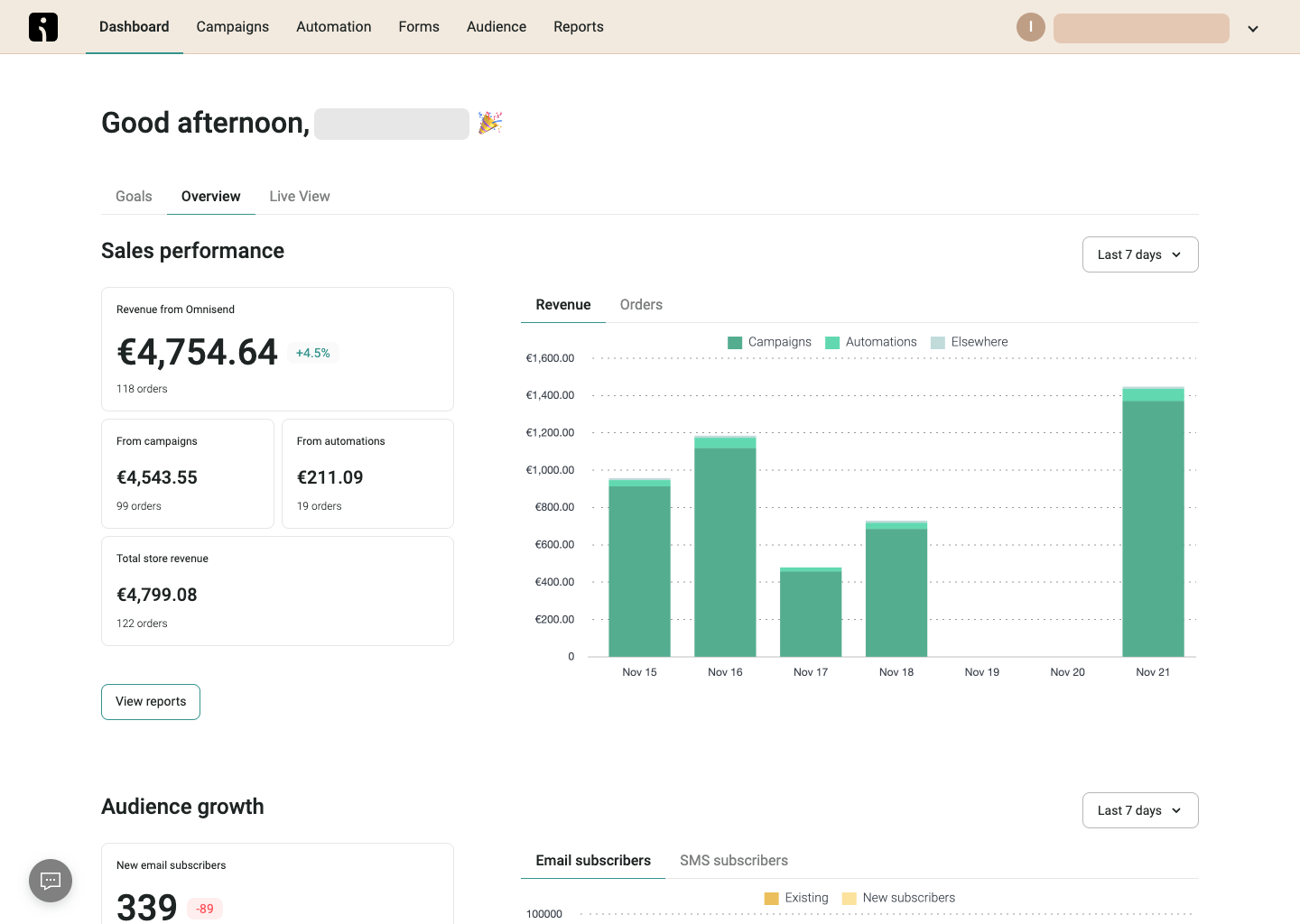
Automation Features
- Pre-built ecommerce workflows. Ready-made automation templates for cart abandonment, welcome series, browse abandonment, and post-purchase sequences;
- Omnichannel campaign builder. Unified automation combining email, SMS, and web push notifications in single workflows for consistent messaging;
- Product-based triggers: Advanced ecommerce triggers including product purchases, category browsing, inventory updates, and customer value milestones;
- Dynamic product recommendations. Automated product picker with behavioral targeting and cross-sell/upsell recommendations based on purchase history.
Pros & Cons
- ✅ Pre-built ecommerce workflows (cart abandonment, etc.)
- ✅ Email, SMS, and push notifications in one workflow
- ✅ Dynamic product recommendations
- ❌ Limited functionality outside ecommerce
- ❌ Pricing increases quickly with list growth
- ❌ Fewer email templates than competitors
Use Cases by Industry
Omnisend specializes exclusively in ecommerce automation, making it the right choice for online retailers, direct-to-consumer brands, and digital marketplace sellers. The platform’s industry-specific features and integrations are purpose-built to drive sales and customer retention for businesses selling products online.
- Fashion & apparel. Size and style preference targeting, seasonal collection launches, and inventory-based urgency campaigns with dynamic product showcases;
- Health & beauty. Subscription renewal reminders, product replenishment cycles, and personalized skincare routines with automated review collection workflows.
Brevo (Sendinblue) — Budget Alternative
Brevo offers exceptional value for businesses seeking advanced marketing automation at a fraction of enterprise platform costs. With pricing based on email volume rather than contact count, Brevo is particularly attractive for businesses with large databases but moderate sending frequency.
The platform provides comprehensive automation capabilities, CRM integration, and transactional email services even in entry-level plans starting at $8/month. Brevo’s drag-and-drop automation builder enables sophisticated workflow creation including lead scoring, behavioral triggers, and multi-channel sequences without technical expertise.
Brevo’s multichannel approach combines email, SMS, and web push notifications in unified campaigns, while the integrated CRM tracks leads through the entire sales funnel. The generous free plan allows 300 daily emails with unlimited contacts and includes core automation features—ideal for businesses testing marketing automation or operating on limited budgets.
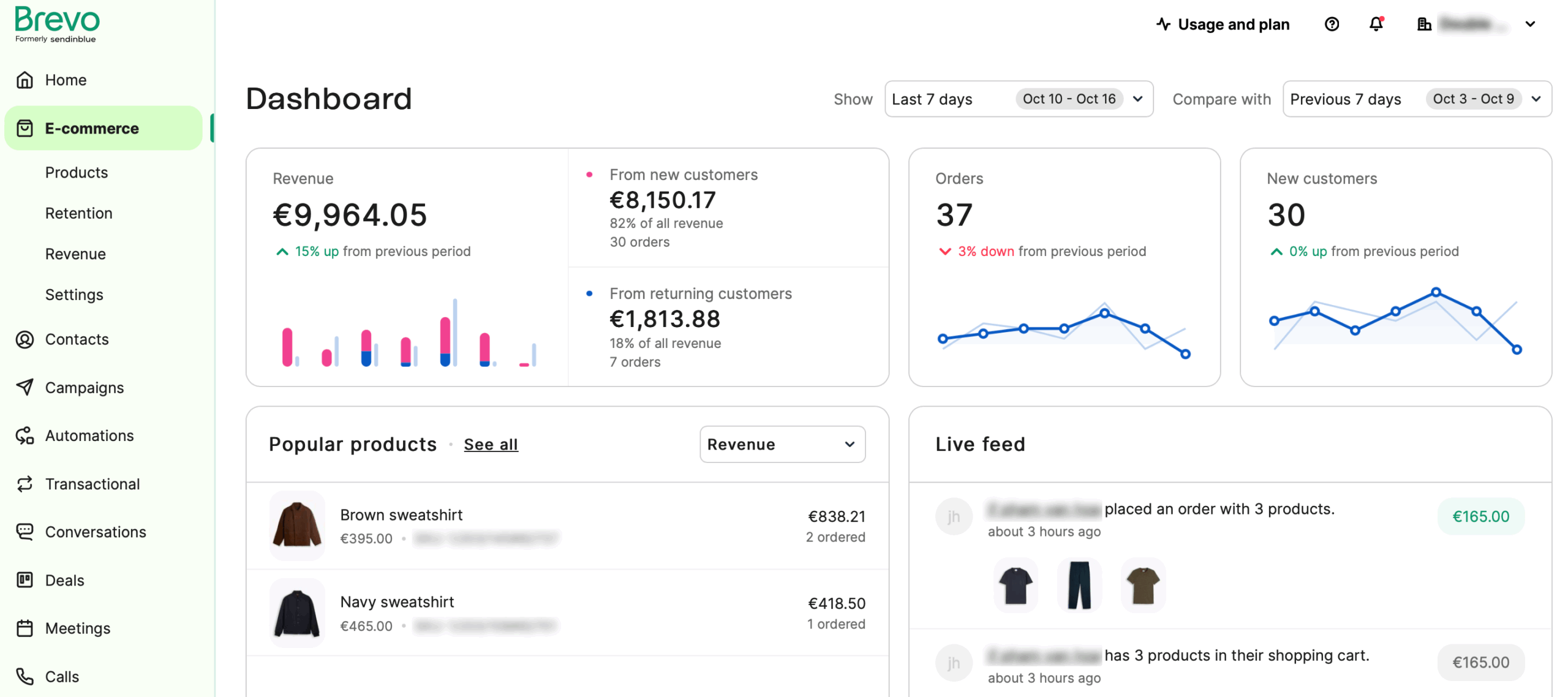
Automation Features
- Visual workflow builder. Drag-and-drop automation editor with pre-built templates for welcome sequences, lead nurturing, and customer lifecycle campaigns;
- Behavioral trigger system. Advanced triggers based on email engagement, website activity, CRM data changes, and contact property updates;
- Multichannel automation: Unified workflows combining email, SMS, and web push notifications with conditional logic and branching paths;
- Marketing automation scoring. Built-in lead scoring system with automated contact tagging and segmentation based on engagement and behavior.
Pros & Cons
- ✅ Affordable volume-based pricing (not contact-based)
- ✅ Advanced automation triggers even on free tier
- ✅ Built-in CRM included
- ❌ Daily send cap on free plan (300 emails)
- ❌ User interface can feel outdated
- ❌ Automation UI less intuitive than competitors
Use Cases by Industry
Brevo’s affordable pricing and comprehensive feature set make it accessible to small and medium businesses across all industries. The platform’s volume-based pricing model is particularly beneficial for organizations with large contact databases and moderate sending requirements, making it ideal for budget-conscious businesses.
- Small business & startups. Lead generation campaigns, customer onboarding sequences, and newsletter automation with cost-effective multichannel messaging;
- Non-profit organizations. Donor engagement workflows, volunteer recruitment campaigns, and event promotion sequences with budget-friendly unlimited contact storage.
Mailchimp — Ideal for Small Businesses
Mailchimp has evolved from a simple email service provider into a comprehensive marketing platform suited for small businesses seeking an approachable Pardot alternative. With its intuitive interface and extensive template library, Mailchimp enables businesses to launch professional campaigns without technical expertise or dedicated marketing teams.
The platform’s automation features include customer journey mapping, behavioral triggers, and ecommerce integration that automatically creates targeted campaigns based on purchase history and browsing behavior. Mailchimp’s audience segmentation tools use demographic, behavioral, and purchase data to deliver personalized content that drives higher engagement.
The platform’s social media tools, landing page builder, and basic CRM functionality provide small businesses with comprehensive marketing capabilities that grow with their needs. With transparent pricing and no hidden fees, Mailchimp delivers professional results without overwhelming complexity.
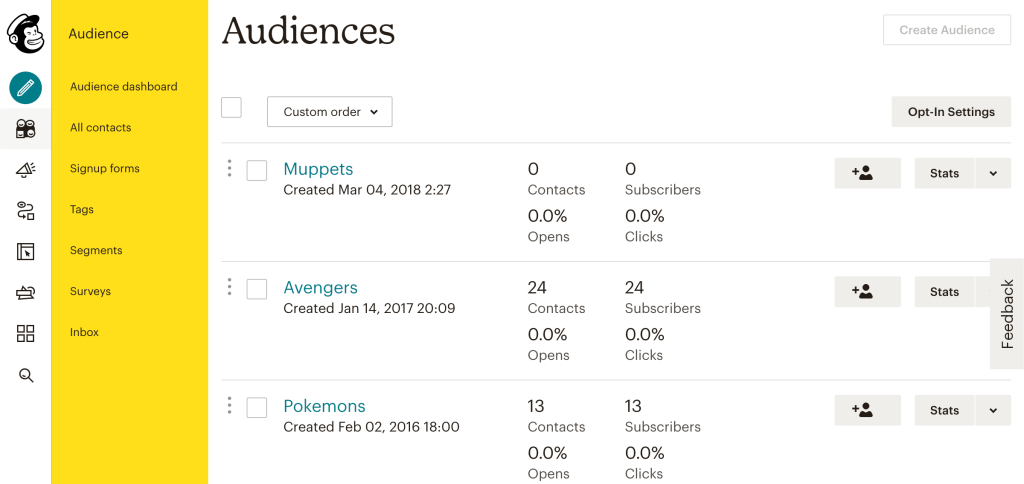
Automation Features
- Customer journey builder. Visual automation designer with pre-built templates for welcome series, abandoned cart recovery, and post-purchase follow-ups;
- Behavioral targeting. Automated triggers based on email engagement, website activity, purchase behavior, and audience segmentation for personalized messaging;
- Predictive insights. AI-driven automation features including optimal send times, customer likelihood to purchase, and content recommendations;
- Ecommerce integration. Automated product recommendations, purchase follow-ups, and abandoned cart sequences with dynamic product content blocks.
Pros & Cons
- ✅ Beginner-friendly interface
- ✅ AI-assisted content and send-time insights
- ✅ Strong ecommerce integrations
- ❌ Gets expensive as lists grow
- ❌ Customer support can be slow
- ❌ Low Trustpilot score (2.8/5)
Use Cases by Industry
Mailchimp’s user-friendly interface and scalable pricing make it suitable for small to medium businesses across diverse industries. The platform’s balance of simplicity and sophistication allows entrepreneurs, creative professionals, and growing companies to implement professional marketing automation without technical expertise or large budgets.
- Creative & design services. Portfolio showcases, client project updates, and service promotion campaigns with beautiful templates and brand customization;
- Local businesses & restaurants. Event promotions, loyalty program automation, and location-based marketing campaigns with social media integration and audience insights.
Klaviyo — Data-Driven Ecommerce
Klaviyo specializes in data-driven email marketing for ecommerce businesses, offering advanced analytics and machine learning capabilities that rival enterprise platforms. The platform processes billions of data points and engagement data to create hyper-personalized customer experiences that drive measurable revenue growth.
Klaviyo’s predictive analytics include customer lifetime value modeling, churn prediction, and optimal send-time algorithms that improve engagement and conversion rates. The advanced segmentation engine processes real-time behavioral data, purchase history, and predictive metrics to create dynamic audience segments that automatically update based on customer actions.
Deep integration with ecommerce platforms captures granular product and customer data, enabling sophisticated triggered campaigns based on specific product interactions, inventory levels, and purchasing patterns. Klaviyo’s A/B testing capabilities extend beyond subject lines to include multivariate campaign optimization for continuous performance improvement.
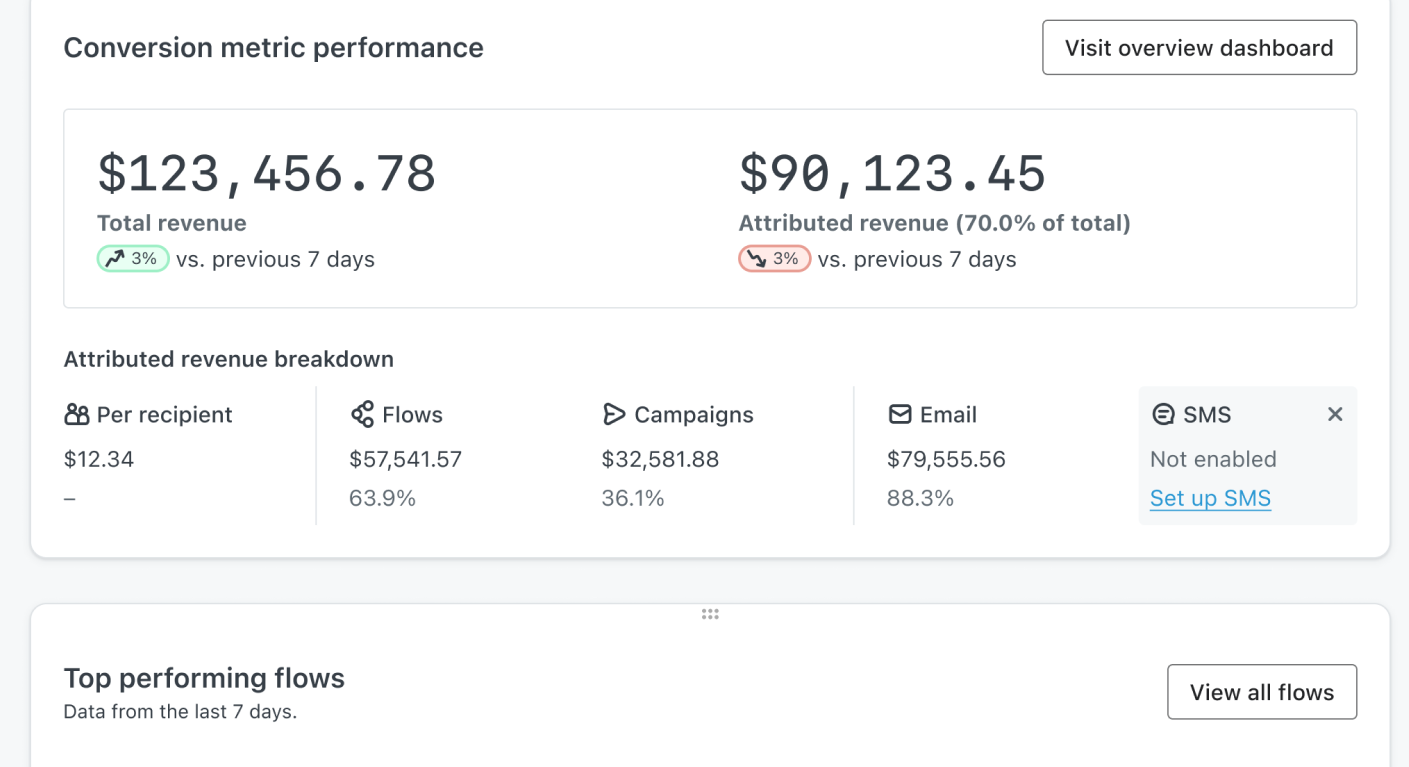
Automation Features
- Predictive analytics engine. Machine learning algorithms for customer lifetime value, churn prediction, and optimal send time optimization;
- Real-time behavioral triggers. Advanced automation based on browse abandonment, purchase behavior, product interactions, and engagement patterns;
- Dynamic segmentation. AI-driven audience segmentation that automatically updates based on customer behavior, purchase history, and predictive metrics;
- Flow performance optimization. Automated A/B testing for entire workflows with machine learning optimization for timing, content, and channel selection.
Pros & Cons
- ✅ Predictive analytics and CLV modeling
- ✅ Deep ecommerce platform integration
- ✅ Smart, real-time segmentation
- ❌ Expensive for small businesses
- ❌ Steep learning curve for new users
- ❌ Low Trustpilot score (2.2/5)
Use Cases by Industry
Klaviyo excels in data-intensive ecommerce environments where sophisticated customer analytics and personalization drive revenue growth.
The platform’s advanced machine learning capabilities make it ideal for established online retailers and subscription-based businesses that require deep customer insights and predictive marketing automation.
- Subscription ecommerce. Customer lifetime value optimization, churn prevention workflows, and subscription renewal campaigns with predictive analytics and retention modeling;
- Fashion & luxury retail. Personalized style recommendations, VIP customer segmentation, and inventory-driven urgency campaigns with advanced behavioral targeting algorithms.
ActiveCampaign — Email Automation Platform
ActiveCampaign distinguishes itself through sophisticated automation capabilities and sales CRM integration, making it a strong Pardot alternative for growing B2B businesses. The platform bridges the gap between simple email tools and complex enterprise solutions, excelling at lead nurturing throughout the customer journey.
The visual automation builder enables complex, branching workflows that respond to customer behavior, engagement levels, and CRM data. ActiveCampaign’s machine learning capabilities include predictive sending, win probability scoring, and automated content optimization that adapts campaigns based on individual preferences and behaviors.
The platform’s conversation tracking and deal management features ensure marketing and sales teams maintain consistent communication throughout the customer journey. With over 850 integrations and robust API capabilities, ActiveCampaign adapts to existing technology stacks while providing the automation sophistication needed for complex B2B marketing strategies.
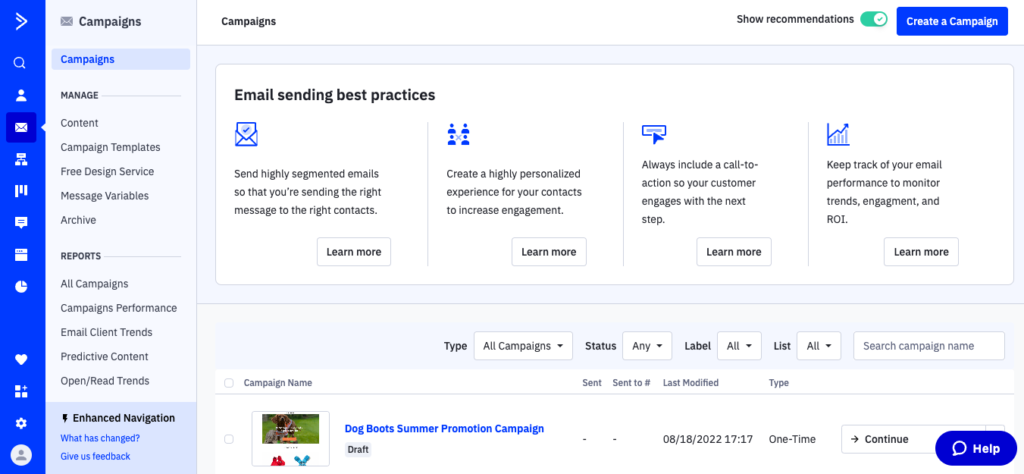
Automation Features
- Visual automation builder. Sophisticated drag-and-drop workflow editor with conditional logic, goals, and branching paths for complex automation sequences;
- Machine learning optimization. AI-driven predictive sending, win probability scoring, and automated content optimization based on individual engagement patterns;
- CRM-integrated workflows. Seamless automation between marketing and sales with lead scoring, deal stage progression, and automated task assignment;
- Advanced split testing. A/B testing for entire automation sequences with goal tracking and statistical significance reporting for optimization.
Pros & Cons
- ✅ Advanced CRM and sales pipeline integration
- ✅ Predictive sending and lead scoring
- ✅ Powerful A/B testing tools
- ❌ Can be complex to set up initially
- ❌ No free plan (14-day trial only)
- ❌ Limited ecommerce-specific features
Use Cases by Industry
ActiveCampaign’s sophisticated automation and CRM integration make it ideal for B2B companies and service-based businesses with complex sales cycles. The platform’s advanced features support organizations that require detailed customer relationship management combined with marketing automation to nurture leads through extended decision-making processes.
- B2B software & technology. Complex lead nurturing sequences, sales pipeline automation, and customer success workflows with advanced scoring and CRM integration;
- Professional services & agencies. Client onboarding automation, project milestone tracking, and service upselling campaigns with detailed behavioral analytics and reporting.
Marketo — Enterprise-Grade Automation
Adobe Marketo Engage serves large organizations requiring sophisticated marketing automation and extensive customization. Built for complex B2B sales cycles and multi-touch attribution, Marketo provides the scalability and advanced features enterprise marketing teams demand, with robust account engagement capabilities across multiple channels.
The platform’s account-based marketing capabilities include sophisticated scoring models, buying group identification, and coordinated campaign orchestration across multiple stakeholders. Marketo’s advanced lead management features include progressive profiling, behavioral scoring, and automated lead routing to optimize sales team efficiency.
Revenue attribution modeling provides comprehensive visibility into marketing’s pipeline impact, with multi-touch attribution that credits all touchpoints in complex buyer journeys. Enterprise-grade features include advanced personalization engines, extensive API capabilities for custom integrations, and robust data governance tools ensuring compliance with privacy regulations.
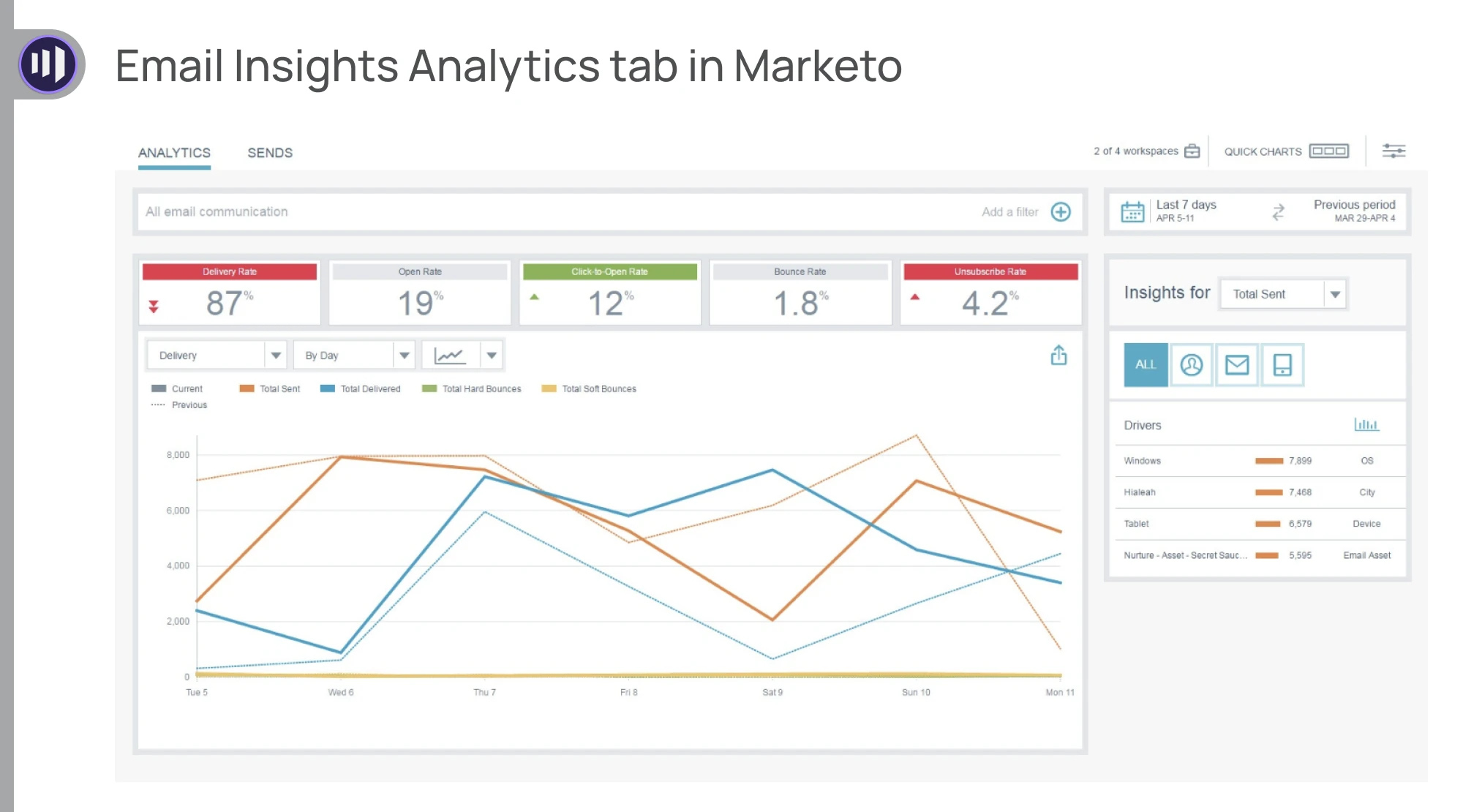
Automation Features
- Smart campaigns. Advanced trigger-based automation with complex logic, nested conditions, and multi-step workflows for sophisticated B2B nurturing;
- Revenue cycle analytics. Comprehensive attribution modeling with multi-touch attribution, revenue stage progression, and pipeline influence tracking;
- Account-based marketing. Coordinated automation across buying groups with account scoring, engagement tracking, and stakeholder identification;
- Predictive content. AI-driven content optimization and personalization with dynamic content blocks and predictive audience engagement.
Pros & Cons
- ✅ Best-in-class account-based marketing (ABM)
- ✅ Deep analytics and multi-touch attribution
- ✅ Scalable for large enterprise teams
- ❌ No free plan or trial available
- ❌ High complexity requires dedicated admin
- ❌ Custom pricing only (typically $40K+/year)
Use Cases by Industry
Marketo Engage serves large enterprise organizations across industries that require sophisticated marketing automation and complex attribution modeling. The platform’s advanced capabilities make it essential for companies with long sales cycles, multiple stakeholders, and substantial marketing budgets requiring detailed ROI measurement and account-based marketing strategies.
- Enterprise technology & software. Multi-touch attribution campaigns, account-based marketing orchestration, and complex lead scoring with advanced revenue cycle analytics;
- Healthcare & pharmaceuticals. Compliance-ready automation workflows, multi-stakeholder nurturing campaigns, and detailed attribution reporting with regulatory compliance features and data governance.
Drip — Ecommerce CRM & Automation
Drip positions itself as an ecommerce CRM, combining customer relationship management with advanced email automation specifically designed for online retailers. The platform’s people-centric approach treats email marketing as relationship building rather than mass communication.
Behavioral tracking capabilities create detailed customer profiles including browsing history, purchase patterns, and engagement preferences. Drip’s advanced segmentation tools use this data to create dynamic audiences that automatically update based on customer actions and lifecycle stage.
The visual workflow builder enables sophisticated automation sequences that adapt to customer behavior, with conditional logic and branching creating personalized experiences for each subscriber. Ecommerce integrations provide real-time data synchronization that triggers automated campaigns based on purchase behavior, inventory levels, and customer value metrics.
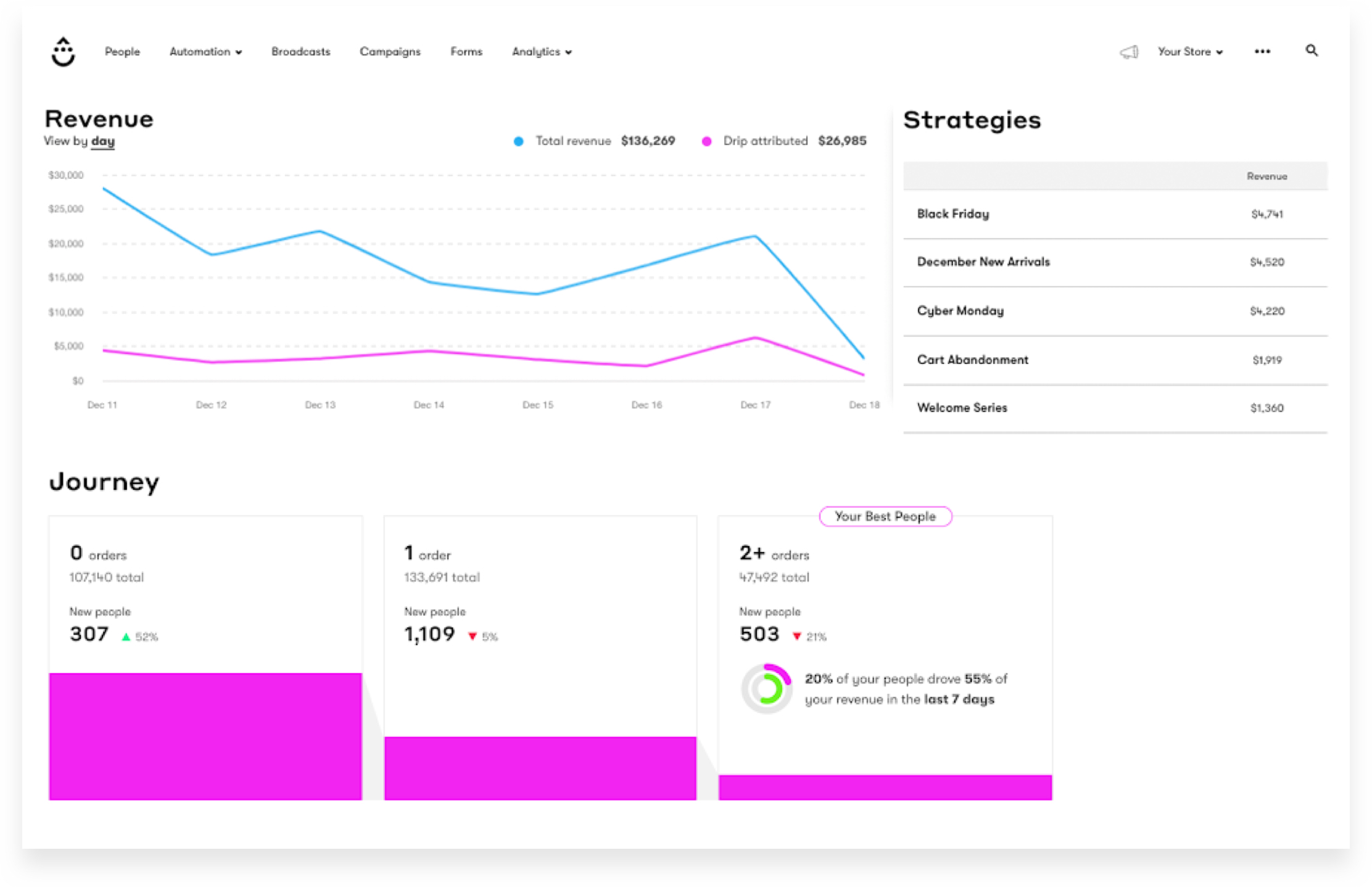
Automation Features
- Visual workflow builder. Intuitive automation editor with conditional logic, branching paths, and sophisticated rule-based triggers for personalized customer journeys;
- Behavioral automation rules. Advanced trigger system based on purchase behavior, browsing activity, engagement patterns, and customer lifecycle stages;
- Ecommerce integration triggers. Automated workflows triggered by specific product purchases, category browsing, cart value thresholds, and inventory changes;
- Dynamic segmentation engine. Real-time audience updates based on customer behavior with automated tagging, scoring, and lifecycle stage progression.
Pros & Cons
- ✅ Ecommerce-focused CRM functionality
- ✅ Detailed customer behavior tracking
- ✅ Visual automation builder with branching logic
- ❌ Pricey for small shops ($39/month minimum)
- ❌ Learning curve for advanced features
- ❌ Limited brand awareness and reviews
Use Cases by Industry
Drip specializes in ecommerce customer relationship management, making it suitable for online retailers who prioritize deep customer insights and relationship building. The platform’s people-centric approach and detailed behavioral tracking serve businesses that view email marketing as a crucial component of their customer retention and lifetime value strategies.
- Premium ecommerce brands. Customer lifetime value optimization, VIP segmentation workflows, and loyalty program automation with detailed purchase behavior analysis;
- Subscription box services. Churn prevention campaigns, subscription renewal automation, and personalized product recommendation workflows with advanced customer profiling and retention analytics.
GetResponse — Great Email Automation Features
GetResponse offers comprehensive email automation as a cost-effective Pardot alternative, combining traditional email marketing with advanced automation and landing page creation. The Conversion Funnel feature provides an all-in-one solution for lead generation, nurturing, and conversion optimization.
The automation builder includes advanced workflow templates and behavioral triggers responding to subscriber actions, engagement levels, and demographic data. GetResponse’s time-based and action-based automation enables sophisticated drip campaigns guiding prospects through complex sales funnels.
The platform’s autoresponder capabilities include advanced personalization, dynamic content, and A/B testing, optimizing performance across audience segments. List management and segmentation tools use behavioral and demographic data for targeted campaigns, improving engagement and conversion rates.
Features, including perfect timing optimization and automated list cleaning, ensure maximum deliverability while maintaining cost-effective pricing.
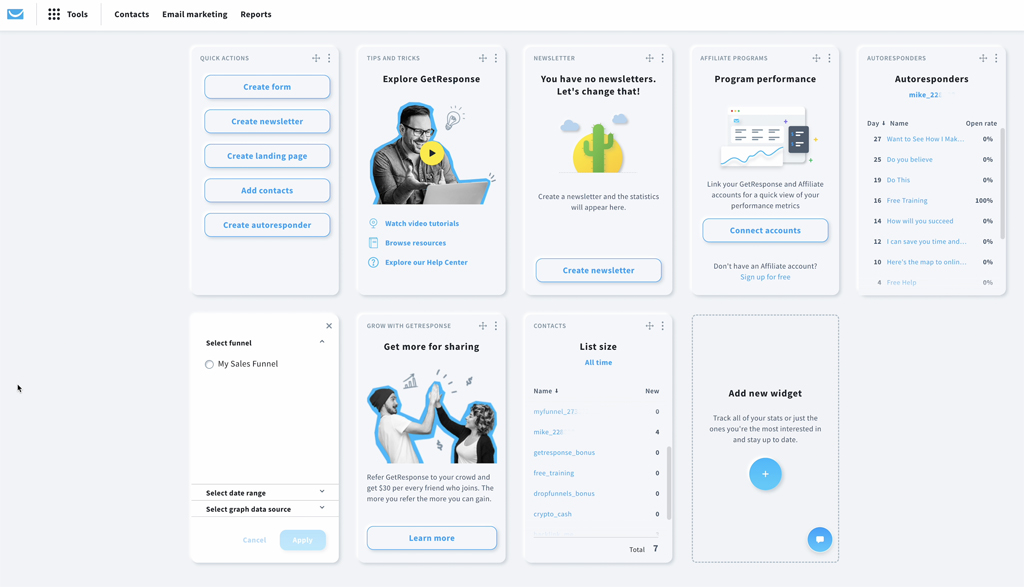
Automation Features
- Drag-and-drop workflow builder. Visual automation editor with pre-built templates for common scenarios, including welcome sequences and cart abandonment;
- Behavioral triggers. Advanced triggers based on email opens, link clicks, website visits, and ecommerce actions for targeted follow-ups;
Perfect timing optimization. AI-driven send time optimization that delivers emails when subscribers are most likely to engage; - Autoresponder sequences. Time-based email series with personalization tokens and dynamic content blocks for nurturing campaigns.
Pros & Cons
- ✅ Built-in conversion funnel builder
- ✅ AI-powered send-time optimization
- ✅ Strong autoresponder sequences
- ❌ Lower Shopify rating (3.0/5)
- ❌ Interface feels slightly dated
- ❌ Feature overload can overwhelm beginners
Use Cases by Industry
GetResponse’s comprehensive feature set and competitive pricing make it an ideal choice for diverse industries seeking all-in-one marketing solutions. The platform’s Conversion Funnel approach and integrated webinar capabilities particularly benefit businesses that rely on educational content and lead nurturing to drive conversions and customer relationships.
- Online education & training. Course promotion workflows, student engagement sequences, and webinar automation with integrated landing pages and conversion tracking;
- Digital marketing agencies. Client campaign management, lead generation funnels, and automated reporting workflows with white-label capabilities and multi-account management features.
Customer.io — Behavioral Messaging for SaaS
Customer.io is a purpose-built messaging platform for product-led SaaS companies needing communications triggered by real-time user behavior. Unlike traditional email tools, Customer.io treats user actions—feature adoption, login frequency, subscription status—as the foundation for sophisticated lifecycle campaigns.
The platform excels at integrating deeply with your product’s data layer, pulling in events, attributes, and custom objects to create personalized messaging across email, SMS, push notifications, and in-app messages. The visual workflow builder enables both technical and non-technical marketers to construct complex automation sequences responding dynamically to product interactions.
With native integrations for data warehouses like Snowflake and BigQuery, Customer.io supports reverse ETL workflows keeping customer profiles synchronized. A startup program provides one free year for companies with under $10 million in funding—making enterprise-grade behavioral automation accessible to early-stage businesses.
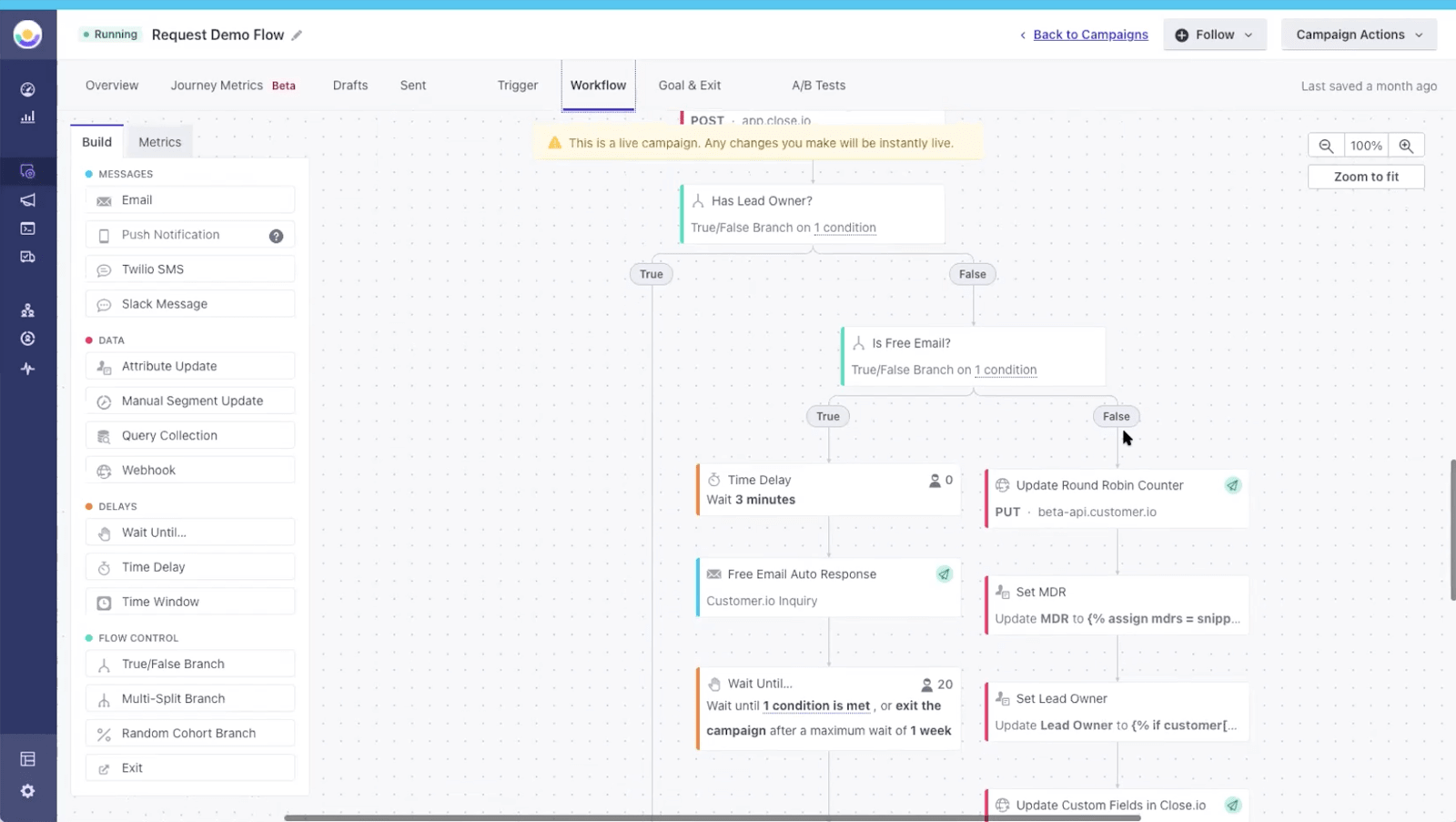
Automation Features
- Event-based triggers. Real-time automation based on product usage events, feature interactions, API calls, and custom webhooks for precise behavioral targeting.
- Visual workflow builder. Drag-and-drop campaign editor with conditional logic, branching paths, delays, and multi-channel message coordination.
- Advanced segmentation engine. Dynamic audience creation using unlimited profile attributes, event history, and custom object relationships for granular targeting.
- A/B and cohort testing. Built-in experimentation tools for optimizing message content, timing, and workflow performance with statistical analysis.
Pros & Cons
- ✅ Deep behavioral and event-based automation
- ✅ Omnichannel messaging (email, SMS, push, in-app)
- ✅ Startup program offers 1 year free
- ❌ Steep learning curve for non-technical users
- ❌ Pricing escalates quickly as profiles grow
- ❌ Complex setup requires technical resources
Use Cases by Industry
Customer.io is purpose-built for technology companies and product-led businesses where user behavior drives messaging strategy. The platform’s deep data integration and event-based automation make it essential for SaaS companies, mobile apps, and subscription businesses that need to communicate based on how customers actually use their products.
- SaaS & software companies. User onboarding sequences triggered by feature adoption, churn prevention workflows based on engagement decline, and upgrade campaigns targeting power users approaching plan limits.
- Mobile apps & fintech. In-app messaging combined with push notifications for transaction alerts, behavioral nudges for inactive users, and personalized re-engagement campaigns based on app usage patterns.
Quick Decision Guide
Choosing the right Pardot alternative doesn’t have to be overwhelming when you nail down your specific business needs and constraints. The key is matching platform capabilities with your industry requirements, team size, and budget limitations. Use these practical guidelines to narrow down your options and make a confident decision.
Choose Based on Your Business Type
Selecting the right Pardot alternative depends heavily on your specific business model, size, and marketing requirements. Different platforms excel in different scenarios, so understanding your business type helps narrow down the most suitable options.
Salesforce users
If you’re already invested in the Salesforce ecosystem, staying with Pardot ensures seamless integration and data flow between your CRM and marketing automation. However, consider that newer platforms, including Sender, offer robust Salesforce integrations while providing more modern multichannel capabilities at a fraction of the cost.
Growing B2B companies
HubSpot Marketing Hub and ActiveCampaign are excellent choices for scaling B2B organizations. HubSpot provides comprehensive inbound marketing tools and CRM integration, while ActiveCampaign offers sophisticated automation workflows. For budget-conscious B2B companies, Sender delivers enterprise-grade automation features with multichannel capabilities that grow with your business.
Large enterprises
Marketo Engage remains the go-to-choice for enterprise organizations requiring advanced account-based marketing, complex attribution modeling, and extensive customization capabilities to support sophisticated B2B sales cycles.
Small businesses
Mailchimp and Brevo offer user-friendly interfaces with affordable pricing suitable for small business budgets. Sender also deserves consideration in this category, as its generous free plan (15,000 monthly emails) and intuitive automation tools make it ideal for small businesses ready to implement professional marketing automation.
Ecommerce specialists
Omnisend, Klaviyo, and Drip specialize in ecommerce marketing with features including cart abandonment workflows, product recommendations, and purchase-based segmentation designed specifically for online retailers.
Agencies
SharpSpring provides white-label capabilities and multi-client management features specifically designed for marketing agencies managing multiple client accounts.
All-in-one needs
Infusionsoft by Keap combines CRM, marketing automation, and ecommerce functionality in a single platform, though businesses should also evaluate Sender’s comprehensive feature set that includes email, SMS, and automation tools in one affordable solution.
Choose Based on Budget
Your budget plays a crucial role in determining which Pardot alternative best fits your needs. Marketing automation platforms vary significantly in pricing, ranging from generous free plans to enterprise-level investments that can cost thousands of dollars per month.
Free options
Several platforms offer capable free plans to get started. Mailchimp provides basic automation for up to 2,000 contacts, while Brevo allows 300 daily emails with unlimited contacts. HubSpot offers limited free tools, and Klaviyo provides a free tier for smaller lists. However, Sender stands out with the most generous free plan, offering 15,000 monthly emails for 2,500 subscribers with full access to automation features—significantly more than competitors.
Budget-friendly ($10-50/month)
ActiveCampaign, Brevo, and Mailchimp offer affordable entry plans suitable for small to medium businesses. Sender also excels in this category, with paid plans that provide exceptional value through multichannel automation capabilities typically found in more expensive platforms.
Mid-range ($50-200/month)
HubSpot’s Professional plans, SharpSpring, and Infusionsoft by Keap serve growing businesses needing advanced features including lead scoring, detailed analytics, and CRM integration without enterprise complexity.
Enterprise ($200+/month)
Marketo Engage and HubSpot’s Enterprise plans cater to large organizations requiring sophisticated account-based marketing, advanced attribution modeling, and extensive customization capabilities.
For businesses evaluating budget options, consider that Sender’s competitive pricing and comprehensive feature set often provide better value than traditional budget alternatives, delivering enterprise-quality automation at small business prices.
Also read:


